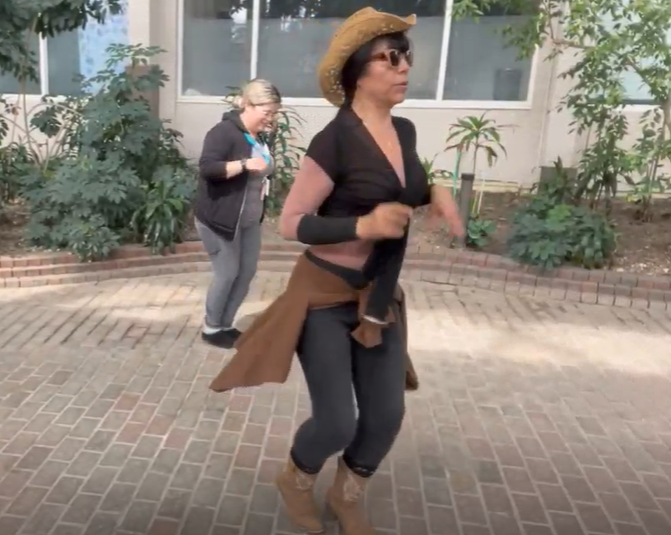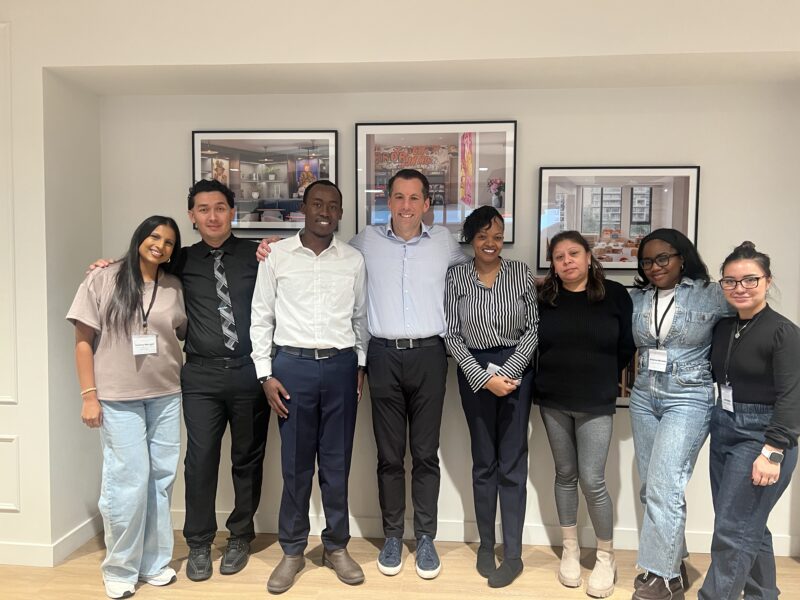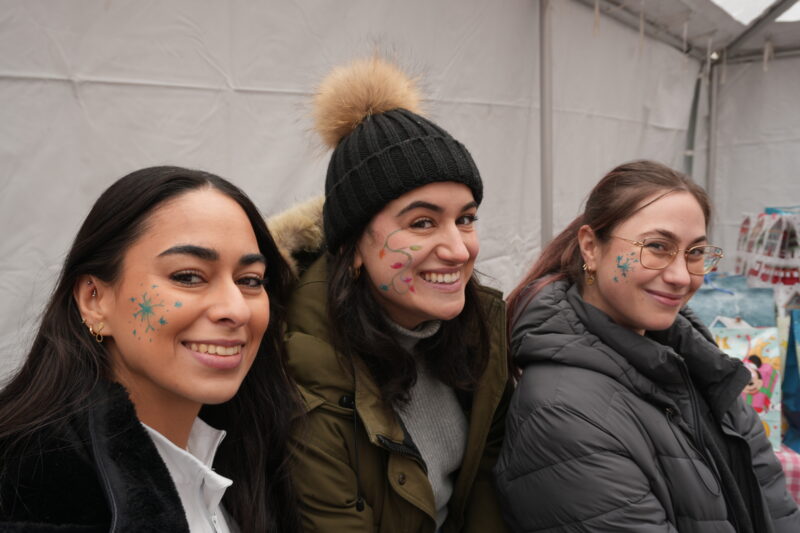Introduction:
During Volunteer Week, from April 27 to May 3, we are highlighting the inspiring stories of individuals who are making a difference through service. Lucy, a resilient refugee and resident at the Delta Shelter, shares how volunteering has helped her navigate the challenges of displacement, heal from trauma, and build a new life in Canada. Her story is one of strength, compassion, and the healing power of community.
To learn more about Volunteer Week, visit volunteer.ca.
By Ana Cisneros, DEI Supervisor
Delta Shelter
Check out Lucy’s testimony on how volunteering can enhance your life!

Ana: Lucy, could you tell me a little about yourself—your background, activities, and how you ended up in Canada?
Lucy: I’m Mexican and have always struggled to survive in a sexist culture. I experienced domestic violence and sought refuge in Canada in 2022.
Ana: How have you handled being in different shelters, and what has volunteering meant to you?
Lucy: I first arrived at a Warming Centre, then was transferred to the Kennedy Shelter. I remember it was a rainy day. I had only my suitcase and my cat, whom I brought from Mexico. I had no money. At the Warming Centre, I spent two nights sitting in a chair, waiting for a cot. Eventually, I was moved to the women-only shelter at Kennedy, where I shared a room with another girl—we got along very well.
I had the opportunity to volunteer by teaching yoga and Mexican dance classes. It helped me emotionally. Being a refugee is a radical change, and you can easily fall into depression. Volunteering helped me make friends—some of whom I still keep in touch with. Later, I was transferred to the Willowdale Street Shelter, where I shared a room with 13 people. I fell into a deep depression but started playing dominoes and pickleball, which helped me cope and connect with others.
Volunteering relaxes me because it allows me to help others. It’s like therapy. It’s also rewarding to hear people say they had fun and were able to forget their worries, even briefly. We all come with different problems from our countries, and arriving in Canada can be a shock. I’m grateful for the support I’ve received from the Canadian government.
Ana: Now you’re at the Delta Shelter in Scarborough. How has life been here?
Lucy: I was transferred from Willowdale to Delta because I have a pet, and here we can have our own room. I also had insomnia because I couldn’t be with my cat—she was in a cage all the time. Habiba, my cat, is my emotional support and the love of my life. She keeps my spirits up. While at Delta, she received dental surgery support from the Toronto Humane Society, thanks to a kind stranger I met on the bus who helped cover the cost. Toronto Animal Services also helped through the SNYP Truck’s vet care visits.
Ana: What volunteer activities have you been involved in at Delta?
Lucy: I’ve taught Mexican cumbia, salsa, and Duranguense, as well as yoga and karaoke. I’ve also organized board game sessions and dominoes matches.
Ana: Can you share the three happiest moments you’ve had here at Delta?
Lucy: First, every time someone asks me to lead or join an activity—it makes me feel needed. Second, when I completed a Peer Support Specialist training course with The Neighbourhood Group Community Services. I have an upcoming job interview, and I’m very excited! Third, starting to go to the gym. I’ve always promoted physical activity as a way to prevent addiction, depression, and other life struggles.
Ana: What message would you give to other refugees?
Lucy: It’s easy to say “be strong, persevere, have faith, go to school,” but in reality, it takes a lot of inner strength. I would advise refugees to look for opportunities, gather information, accept help, and always seek support. Don’t be afraid to ask questions.
Ana: Have you ever experienced discrimination in Canada?
Lucy: People of colour often face discrimination where they’re in the minority. I’m usually one of the few Latinas in shelters, and it’s difficult when you don’t speak English well. Even introducing yourself or asking for help can be a challenge. But I’ve seen it as something to overcome. I’m now attending English as a Second Language classes and continuing with counselling.
Ana: Thank you, Lucy, for your courage and honesty. And please give our love to your sweet cat, Habiba!
Conclusion:
Lucy’s story is a powerful reminder of how volunteering can be a lifeline for those navigating hardship, and how building community creates pathways to healing.
To see how you can support Homes First and clients like Lucy, visit homesfirst.on.ca.


